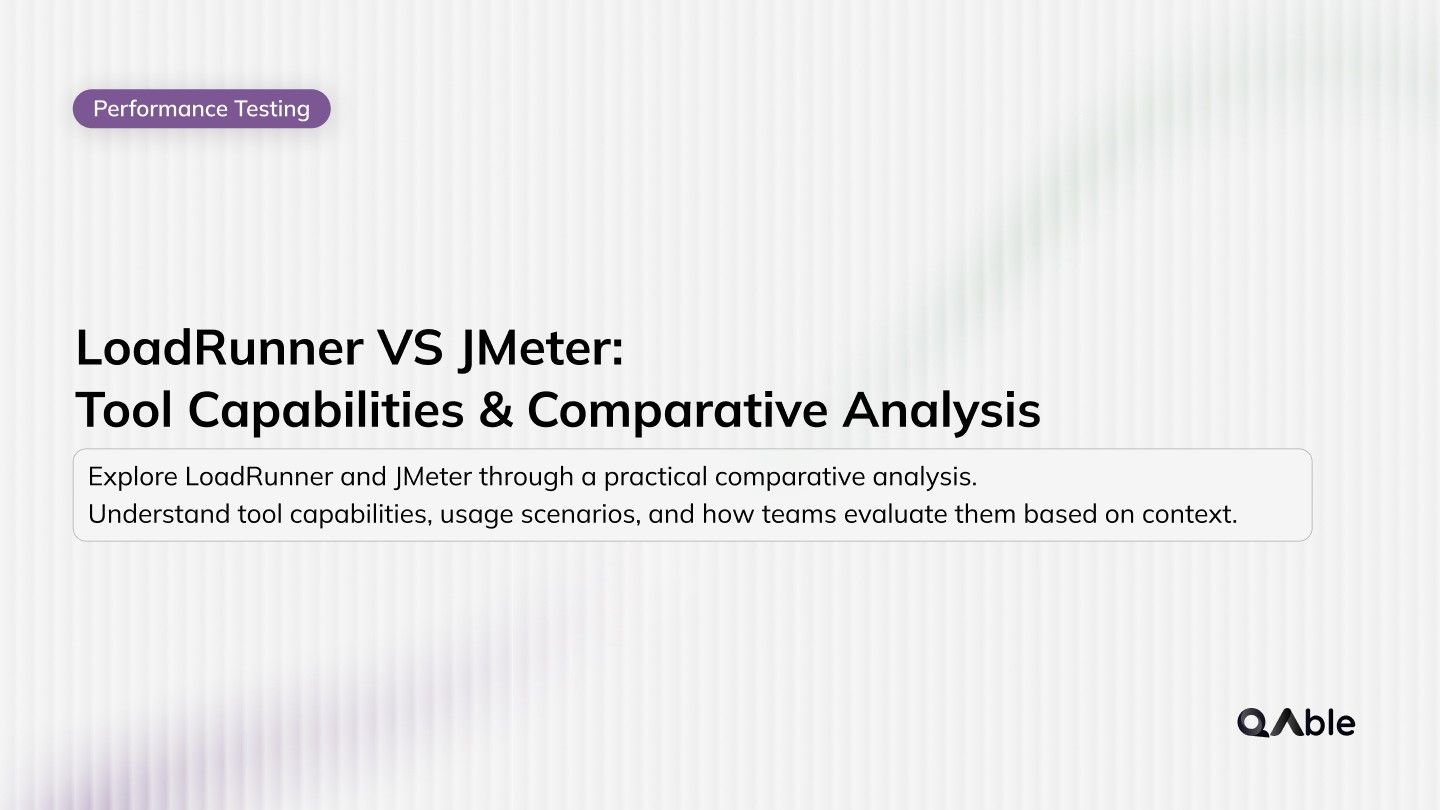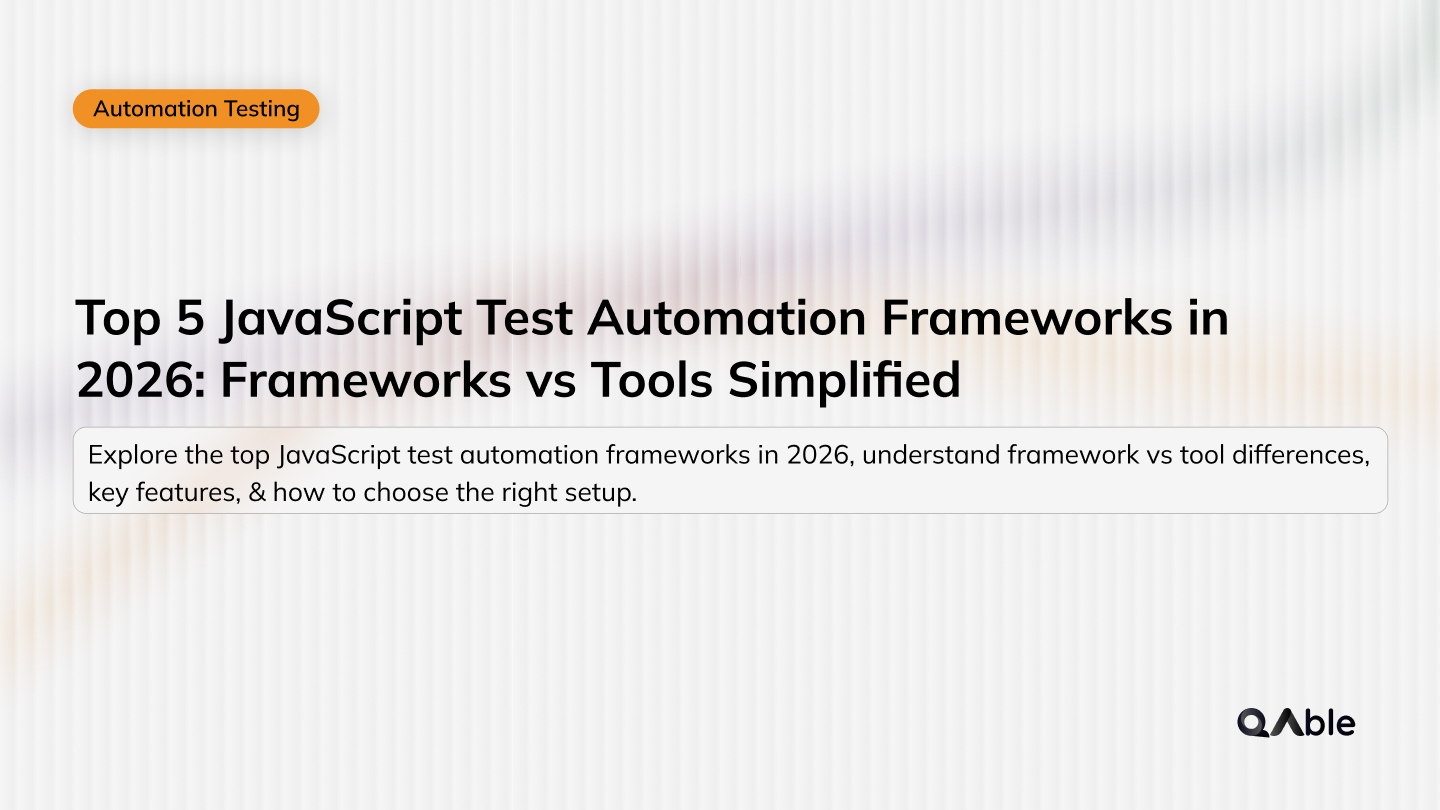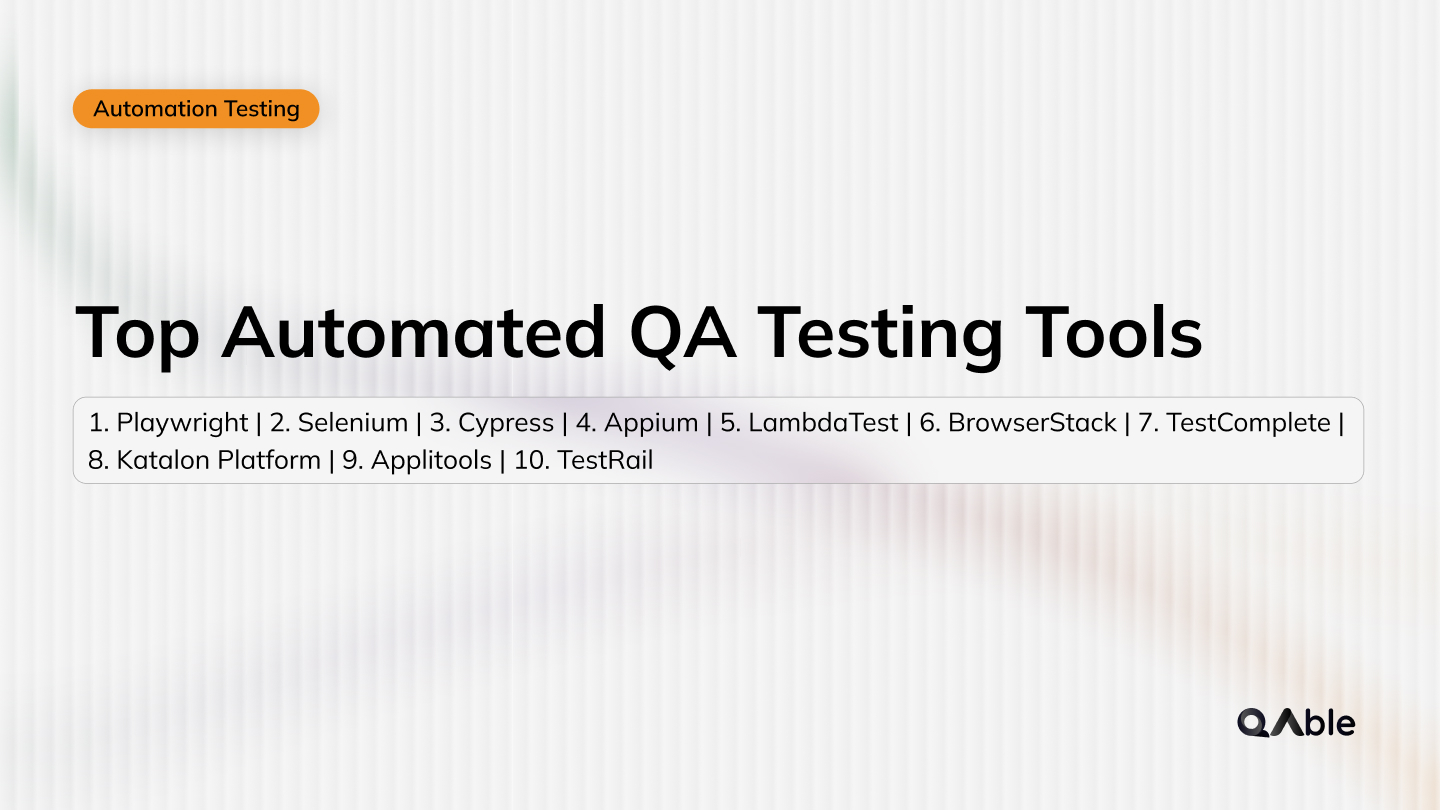Table of content
SHARE THIS ARTICLE
Is this blog hitting the mark?
Contact Us
Table of Content
- Benefits of AI Software Testing
- Challenges of AI Software Testing
- Best Practices of AI Software Testing
- Top AI Software Testing Tools
- Conclusion
- FAQs
Software testing is a crucial process in software development, as it ensures the quality, functionality, and reliability of software applications. However, software testing can also be challenging, time-consuming, and costly, especially as software applications become more complex, diverse, and dynamic.
This is where artificial intelligence (AI) and machine learning (ML) can help. AI and ML are technologies that enable machines to learn from data and perform tasks that normally require human intelligence, such as reasoning, decision making, and problem solving. AI and ML can be applied to various aspects of software testing, such as test design, test execution, test analysis, and test maintenance, to enhance the efficiency, effectiveness, and accuracy of software testing.
In this blog post, we will guide you through the benefits, challenges, and best practices of using AI for software testing, as well as some of the AI software testing tools that you can use to improve your software testing process and outcomes. We will also share some of our experiences and insights as a leading software testing company in India, providing all kinds of testing services, including AI software testing, for other software development companies, startups, and enterprise.
Benefits of AI Software Testing
AI software testing can offer many benefits for software testers, developers, and customers, such as:
Reducing manual effort and human error
AI software testing can automate repetitive, tedious, and error-prone tasks, such as generating test cases, executing test scripts, and verifying test results, saving time and resources for software testers and developers, and reducing the risk of human error and bias.
Increasing test coverage and quality
AI software testing can analyze large amounts of data and code, and identify patterns, anomalies, and dependencies, enabling software testers and developers to create more comprehensive, relevant, and diverse test cases, and ensure the quality and performance of software applications across different platforms, devices, and scenarios.
Adapting to changes and feedback
AI software testing can learn from new data and feedback, and update and optimize the test cases, test scripts, and test strategies accordingly, allowing software testers and developers to cope with the changes and requirements of software applications, and deliver faster and better software releases.
Enhancing customer satisfaction and loyalty
AI software testing can ensure the delivery of high-quality, functional, and reliable software applications, meeting the expectations and needs of customers, and increasing their satisfaction and loyalty.
Also read: What are the limitations of ChatGPT in software testing?
Challenges of AI Software Testing
AI software testing can also pose some challenges for software testers, developers, and customers, such as:
Lack of trust and transparency
AI software testing can be seen as a black box, as it may not be clear how the AI software testing tools generate, execute, and analyze the test cases, and what are the underlying assumptions, logic, and criteria. This can lead to a lack of trust and transparency in the AI software testing process and outcomes, and raise ethical and legal issues, such as accountability, responsibility, and explainability.
Need for data and expertise
AI software testing requires a large amount of data and expertise, as the AI software testing tools need to be trained, validated, and calibrated with relevant, accurate, and diverse data, and the software testers and developers need to have the skills and knowledge to use, interpret, and evaluate the AI software testing tools and results.
Risk of over-reliance and underestimation
AI software testing can create a false sense of security and confidence, as software testers and developers may over-rely on the AI software testing tools and results, and underestimate the limitations, uncertainties, and errors of the AI software testing process and outcomes. This can lead to a loss of human oversight and intervention, and compromise the quality and reliability of software applications.
Also read: Top 10 ChatGPT Prompts for Quality Testing You Can Use Right Away
Best Practices of AI Software Testing
To overcome the challenges and maximize the benefits of AI software testing, software testers, developers, and customers need to follow some best practices, such as:
Researching and choosing the right AI software testing tools
Software testers and developers need to research and compare the features, functions, and performance of different AI software testing tools, and choose the ones that suit their software testing goals, needs, and context. They also need to consider the cost, compatibility, scalability, and security of the AI software testing tools, and ensure that they comply with the relevant standards and regulations.
Developing and implementing a clear AI software testing strategy
Software testers and developers need to develop and implement a clear AI software testing strategy, defining the scope, objectives, criteria, and metrics of the AI software testing process and outcomes. They also need to align the AI software testing strategy with the software development lifecycle, and integrate the AI software testing tools with the existing software testing tools and frameworks.
Investing in data and training
Software testers and developers need to invest in data and training, ensuring that the AI software testing tools have access to sufficient, relevant, accurate, and diverse data, and that the software testers and developers have the skills and knowledge to use, interpret, and evaluate the AI software testing tools and results. They also need to monitor and update the data and the AI software testing tools regularly, and address any data quality and security issues.
Balancing automation and human involvement
Software testers and developers need to balance automation and human involvement, leveraging the AI software testing tools to automate the tasks that are suitable for automation, such as test generation, test execution, and test analysis, and involving the human testers and developers to perform the tasks that require human intelligence, such as test design, test evaluation, and test maintenance. They also need to verify and validate the AI software testing results, and provide feedback and corrections to the AI software testing tools.
Also read: How to Test AI Chatbots: Key Techniques and Tools
Top AI Software Testing Tools
There are many AI software testing tools available in the market, each with its own features, functions, and performance. Some of the AI software testing tools that we have used and recommend are:
ChatGPT
ChatGPT is an AI-powered tool that can generate test cases for chatbot applications, using natural language processing and deep learning. ChatGPT can create realistic and diverse test scenarios, based on the chatbot’s domain, intent, and personality, and evaluate the chatbot’s responses, based on the accuracy, relevance, and coherence.
Testim
Testim is an AI-powered tool that can automate end-to-end testing for web and mobile applications, using computer vision and machine learning. Testim can create, execute, and maintain test scripts, based on the user’s actions and interactions, and analyze the test results, based on the visual, functional, and performance aspects.
Applitools
Applitools is an AI-powered tool that can automate visual testing for web and mobile applications, using computer vision and machine learning. Applitools can capture, compare, and verify the screenshots of the user interface, and detect any visual bugs, anomalies, or changes, across different browsers, devices, and resolutions.
Also read: Chatbot Testing Checklist: Top Tools & Techniques
Conclusion
AI software testing is a promising and emerging field that can enhance the software testing process and outcomes, by automating, optimizing, and improving various aspects of software testing, such as test design, test execution, test analysis, and test maintenance.
AI software testing can offer many benefits for software testers, developers, and customers, such as reducing manual effort and human error, increasing test coverage and quality, adapting to changes and feedback, and enhancing customer satisfaction and loyalty.
However, AI software testing can also pose some challenges for software testers, developers, and customers, such as lack of trust and transparency, need for data and expertise, and risk of over-reliance and underestimation.
Therefore, software testers, developers, and customers need to follow some best practices, such as researching and choosing the right AI software testing tools, developing and implementing a clear AI software testing strategy, investing in data and training, and balancing automation and human involvement. They also need to use some of the AI software testing tools that are available in the market, such as ChatGPT, Testim, and Applitools, to improve their software testing process and outcomes.
We hope that this blog post has given you a comprehensive and practical guide to AI software testing for software applications.
If you are interested in learning more about AI software testing, or if you are looking for a software testing company that can provide you with AI software testing services, please feel free to contact us. We have the experience, expertise, and tools to help you achieve your software testing goals and needs, and deliver high-quality, functional, and reliable software applications.
We would love to hear from you and work with you. 😊
Discover More About QA Services
sales@qable.ioDelve deeper into the world of quality assurance (QA) services tailored to your industry needs. Have questions? We're here to listen and provide expert insights


Nishil Patel is the Co-founder of QAble, delivering advanced test automation solutions with a focus on quality and speed. He specializes in modern frameworks like Playwright, Selenium, and Appium, helping teams accelerate testing and ensure flawless application performance.
.svg)














.webp)
.webp)
.png)
.png)











.png)



.png)

.png)

.png)






.jpg)













.webp)

